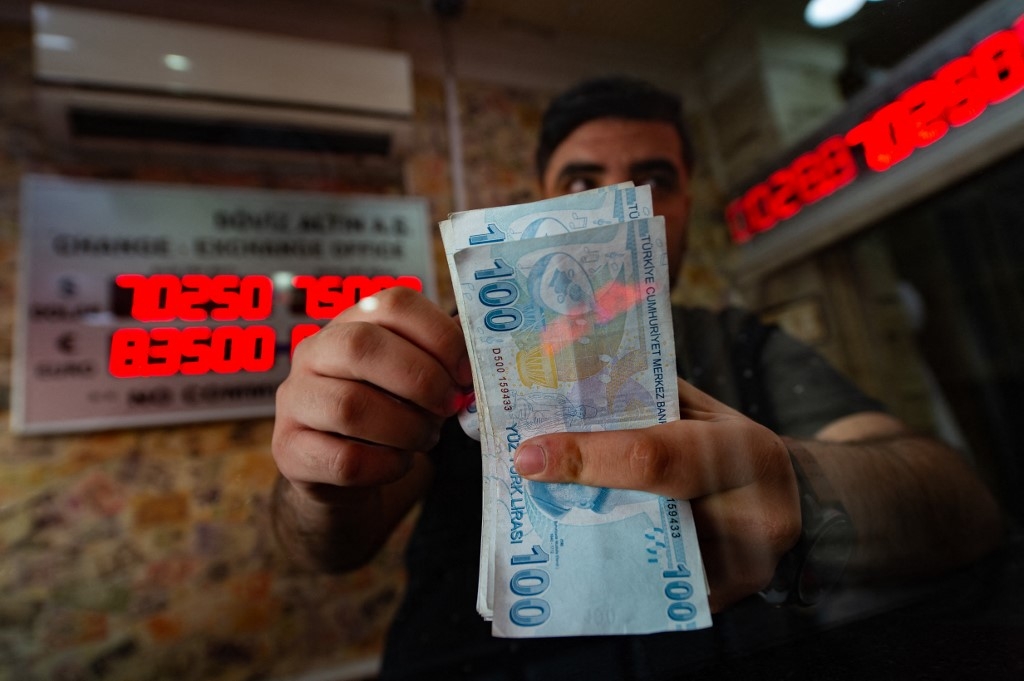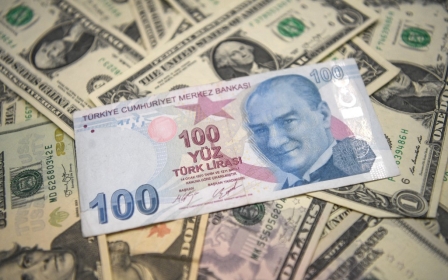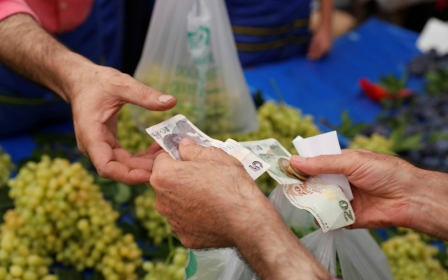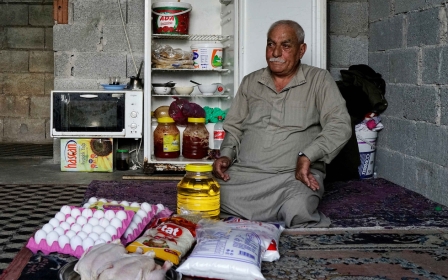Turkey: Central Bank intervenes to salvage lira as Erdogan defends low interest rate policy

Turkey's Central Bank has intervened to help the flailing Turkish lira, as the currency continued to struggle after President Recep Tayyip Erdogan doubled down on cutting interest rates.
After years of pressure from Erdogan and three governors, the Central Bank said it "directly" intervened on Tuesday night by "selling transactions due to unhealthy price formations in exchange rates".
It added that it had "started to conduct transactions at Borsa Istanbul Derivates Market [VIOP] due to unhealthy price formations in exchange rates".
The intervention came moments before Erdogan spoke to state broadcaster TRT on Tuesday night, where he defended his view that high interest rates cause high inflation.
The lira slumped even further, to 14 lira to the dollar, as the president defended his policy on air.
'Interest rates are an evil'
Despite the currency fluctuation, Erdogan vowed to continue defending his policy of low interest rates.
"Turkey has now abandoned the monetary policy based on high interest rates that caused several developing countries to remain stagnant," Erdogan told lawmakers in parliament in Ankara on Wednesday. "Instead, we have transitioned to a growth strategy aiming for investment, employment, production and exports... Interest rates are an evil that makes the rich richer and the poor poorer.
"What we are doing is right," he added. "We have made and are making a politically risky but correct plan. The world knows how uncomfortable I am with high interest rates. I have never been pro-interest rates. I wasn't today and I won't be tomorrow."
The focus on growth is paying off, as the Turkish economy recorded growth of 7.4 percent year-on-year in the third quarter of 2021, official data published on Tuesday indicated. But the lira has lost at least 43 percent of its value in the past year, rapidly eroding the savings of Turks and increasing the cost of everyday products.
Minimum wage debate
During his interview with TRT, Erdogan said he understood "sincere concerns" that Turks have over rising prices and he was "carefully monitoring" the currency fluctuation.
On Wednesday, officials began discussing raising the minimum wage, which is earned by an estimated six million Turks, by 30 percent.
The net monthly Turkish minimum wage is 2,825.90 lira - now worth $214, down from $380 last year.
With an election in 2023, Erdogan hopes to keep his working-class voter base satisfied.
Middle East Eye propose une couverture et une analyse indépendantes et incomparables du Moyen-Orient, de l’Afrique du Nord et d’autres régions du monde. Pour en savoir plus sur la reprise de ce contenu et les frais qui s’appliquent, veuillez remplir ce formulaire [en anglais]. Pour en savoir plus sur MEE, cliquez ici [en anglais].




